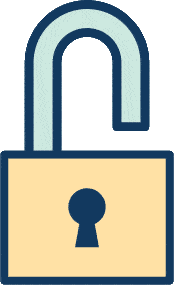Most people dream of finding their soulmate and falling head over heels in love. But for the 52.9 million Americans living with a mental illness, searching for love can be a challenge. Even people with high functioning mental disabilities struggle in the dating world.
Every relationship requires work and dedication but dating with a mental disability calls for a few extra steps. Learn how to deal with first-date nerves and build strong relationships in this guide!
Difficulties Dating With a High Functioning Mental Disability
Mental disabilities, also known as mental illness, can range from mild to severe. High-functioning disabilities are often hard to spot because they might not show stereotypical symptoms. For example, we often associate depression with extreme sadness and lack of motivation.
But energetic, bubbly people with high-level careers who meet their friends for brunch can have depression too. That’s why dating with high functioning mental disabilities can be so confusing. It’s often unexpected and difficult to spot.
In America, depression, anxiety, and PTSD make up 30% of all mental health diagnoses. But high functioning mental disabilities can also include bipolar disorder and schizophrenia, among others. But none of them should stop you from meeting the one!
Meeting the One
A large part of modern dating is digital, which is not necessarily a bad thing. Over 60% of dating app users have had good experiences meeting someone online! But it can increase those first date jitters, so relieve some stress by creating a game plan for yourself.
Choose the Right Place
A carnival might seem like a fun first date, but the noise and people can become overwhelming. Dinner and a movie are a classic go-to, but it leaves little time to actually get to know each other. So, what’s the best place for a date?
Anywhere you feel comfortable! Think about your triggers and choose a location that makes you feel safe and secure. A quiet cafe, a shady picnic in the park, or a small romantic restaurant would be perfect.
A nice hike on a scenic trail or a private art class is great if you prefer something more active. These spots give you a chance to talk without distractions. Check out more great date ideas here!
Plan Ahead
Mental disabilities can often cause problems like time blindness and social anxiety. But planning can relieve some of these symptoms. Start by:
- Scheduling your entire day leading up to the date
- Set aside enough time for self-care and getting ready
- Meditate or relax before leaving the house
- Plan your route to the location
- Avoid distractions
Although spontaneous, last-minute dates seem fun, they can trigger symptoms. Knowing that you have enough time and a plan might play an important role in calming your nerves.
Be Honest
When should you tell your date about your mental disability? According to one survey, 25% of people prefer to tell their partner on a first date while 25% wait a month. Remember that telling someone you have a mental disability is a personal decision.
Despite the changing attitudes towards mental health, some people might be uncomfortable dating someone with a disability. Respect their feelings and your self-worth by not hiding anything. At the same time, never feel pressured to share if you’re not ready!
Building a Strong Relationship
Some of the biggest problems couples face when one has a mental illness are stress, anxiety, guilt, and anger. Studies have also found higher levels of passive aggressiveness and conflict avoidance. Sure, these issues can occur in any relationship, but they tend to be more severe when mental disabilities are present.
Communicate (Even When It’s Hard)
Mental illness can create struggles with verbal and non-verbal communication. This issue can make it hard for people to sustain healthy relationships where communication is vital. Some tips for fostering communication include:
- Tell your partner about your communication problems
- Try not to dwell on body language or word choice
- Avoid making assumptions
- Explore alternative methods (writing letters, sending emails)
- Take a breather when conversations get heated
Above all, never shut your partner out when things get tough. If you need space, express that feeling and return to the conversation later. Sweeping problems under the rug or suppressing your feelings will only create more problems later.
Set Limits and Boundaries
Setting boundaries is crucial for both you and your partner. Creating limits on spending time together, intimacy, or triggers can reduce friction in the future. For example, if you struggle with social anxiety, try to limit social events and balance them with quiet nights at home.
At the same time, show respect for your partner. You can encourage them to set their own boundaries within the relationship. Do not let them take on the role of therapist or caretaker, as it can cause stress and guilt.
Give and Take Space
Couples often fall into a co-dependent trap as the relationship moves forward. One of the main sources of anxiety for some couples is extreme closeness or too much distance. Learn to experience life together while making time for your own interests.
Giving your partner space and asking for it in return can lead to a more fulfilling relationship. If your partner spends time away from you, learn how to squash any negative thoughts that may creep in. Therapy, journaling, and self-reflection are some solutions for dealing with jealousy or doubt.
Learn Together
Your partner might be at a loss if they have never experienced a mental disability firsthand. Take time to learn together so that you’re both better equipped to handle symptoms, triggers, or episodes. When you feel comfortable, try sharing:
- Which situations trigger you
- How you cope with symptoms
- Your needs when experiencing symptoms
- How they can best help you
You might have very different communication and caring styles. If they tend to jump in to rescue mode when they see someone suffering, it might not be what you need. So listen to their feedback and explain how to handle situations.
Try Special Bridge: An Inclusive Dating Community!
Living with a high functioning mental disability isn’t easy, but that doesn’t mean love is off the table! If you struggle to meet people in public, dating apps and websites can be a lifesaver. Special Bridge is the perfect way to meet like-minded people with shared experiences.
Special Bridge is not your typical mainstream dating website. Our easy-to-use design and community support set us above the rest. Sign up now to explore a whole new world of dating!




1 comments:
Jeffrey Batt
May 2, 2022 at 6:56 pm
Heart disease